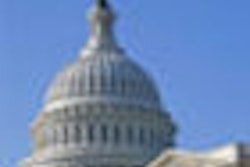How and when individuals without health insurance enter the U.S. market for healthcare, and the services they use despite being uninsured, have emerged as a critical underlying issue in the debate over whether Congress has the constitutional power to establish a minimum coverage requirement for nearly all Americans, according to a new report from the George Washington University School of Public Health and Health Services (Health Care Policy Report, February 3, 2012).
"Longstanding Supreme Court precedent underscores the fact that Congress has the power to intervene when individual conduct affects markets," noted Sara Rosenbaum, JD, the report's lead author, in a university press release. "There is no question that when by choice or necessity the uninsured use healthcare, the consequences are enormous for their families, the communities in which they live, and the healthcare system as a whole."
Among the study's findings:
Data collected by the federal government on the use of healthcare show that regardless of insurance status, over a 10-year time period virtually every American adult will use healthcare.
Aging has an inexorable impact on health status. Over a 15-year time period, the proportion of young adults ages 24 to 39 who become unhealthy as a result of one or more physical health conditions rises from a low of slightly more than 10% in year one to nearly 70% by year 15. In the case of adults ages 40 to 54 in year one, the figure will rise from slightly more than 20% to nearly 80% by year 15.
Injuries are unpredictable, and the potential for a major investment of resources is high. Among persons younger than age 65, more than one in 13 nonfatal injuries involves emergency department treatment and also hospitalization or transfer to another hospital.
Research has shown that although 99.7% of all U.S. births occur in hospitals, more than 425,000 women -- one in 10 -- are uninsured in the month of delivery.
"The empirical evidence is clear," said Paula Lantz, PhD, a study co-author and chair of the department of health policy. "All American adults use healthcare in both predictable and unpredictable ways. This includes those without health insurance coverage, who need healthcare at all ages and increasingly as they get older. The fact that the uninsured often need and receive expensive healthcare has serious consequences for both the health insurance and healthcare markets."
The report was funded by the Robert Wood Johnson Foundation.



















